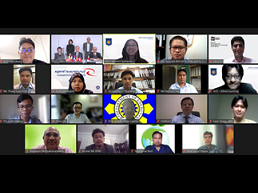
ECCJ held the ECAP25 online seminar in the FY2021 energy conservation support project for ASEAN countries
<Meeting>
Under the instruction and financial support of the Agency for Natural Resources and Energy, the Energy Conservation Center, Japan (ECCJ) has been implementing Scheme 2 of the FY2021 EE&C capacity building program for the ASEAN region. Scheme 2 is a program which aims to foster energy manager trainers and to develop and improve systems for certifying them. As part of this program, ECCJ conducted ECAP25 training in an online format during the four-day period from February 15 to 18, 2022.
(1) Lectures and practical training were given in energy management systems, methods of developing energy management systems, and energy saving in thermal technologies/equipment and in electrical technologies/equipment, and the lecture on the energy conservation for buildings.
(2) Introductions to the latest Japanese energy conservation technologies were made by private enterprises, and remote factory visits were held.
(3) Examinations were held to determine the participants’ degree of understanding, and overall evaluation was made together with the results of the examinations conducted in Thailand, the audit reports and the presentations of the audit results. Trainer certification was awarded to participants who achieved satisfactory evaluations.
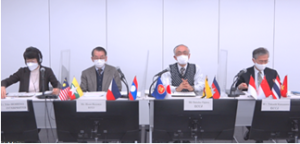 | 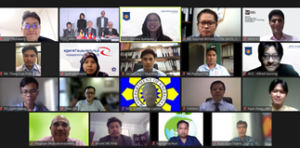 |
Participants from ECCJ | Participants from the ASEAN countries |
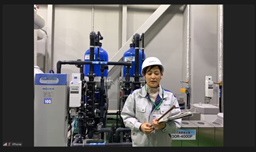 | 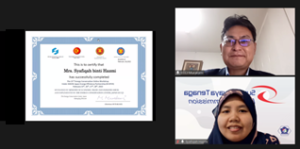 |
Remote factory visit (Miura Co., Ltd.) | Awarding of online certificates |
As part of the Scheme 2 program of the FY2021 EE&C capacity building program for the ASEAN region, ECAP25 invited training was conducted in an online format. A total of 18 persons participated, comprising 17 energy manager trainer candidates from the ASEAN countries and one person from the ASEAN Centre for Energy (ACE). During the four-day period between February 15 and 18, ECCJ gave lectures and practical training on energy management, thermal technologies/equipment and electrical technologies/equipment, and lecture on the energy conservation for buildings, and introductions to the latest Japanese energy conservation technologies were made. At the end of the training, examinations were held to determine the participants’ degree of understanding.
(1) The ECAP25 training was conducted in an online format in a continuation of the training that was implemented in FY2020. Because the training contents made best use of the experiences gained in FY2020, we could confirm from the energy conservation technology course and examination results that the participants’ degree of understanding was almost the same as that realized during the real training which was conducted previously.
(2) Activities consisting of the introductions to the latest Japanese energy conservation technologies, ZEB inspection visit, and the demonstration of the boiler start-up simulations were conducted remotely for the first time. During the factory inspection visit, the remote format allowed participants to clearly view locations that are often hard to check when taking part in real visits, and to visit areas that are difficult to enter. This enabled confirmation of the effectiveness of conducting remote inspection visits.
In the examinations to confirm the participants’ degree of understanding, 13 of the 18 participants successfully passed. It is planned to present awards to six of the successful participants who achieved outstanding examination results at the ASEAN Ministers on Energy Meeting (AMEM) to be held in September 2022.

